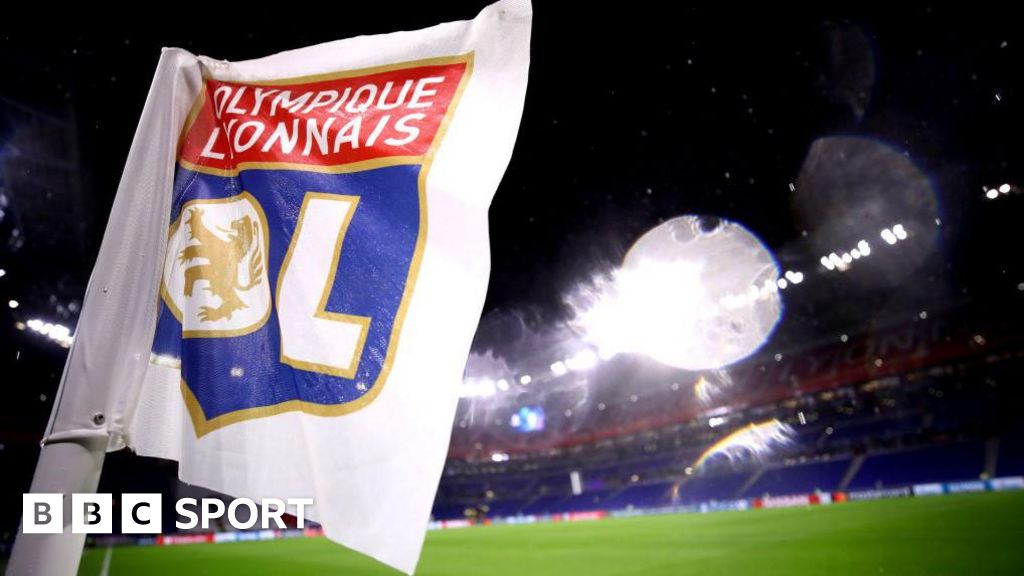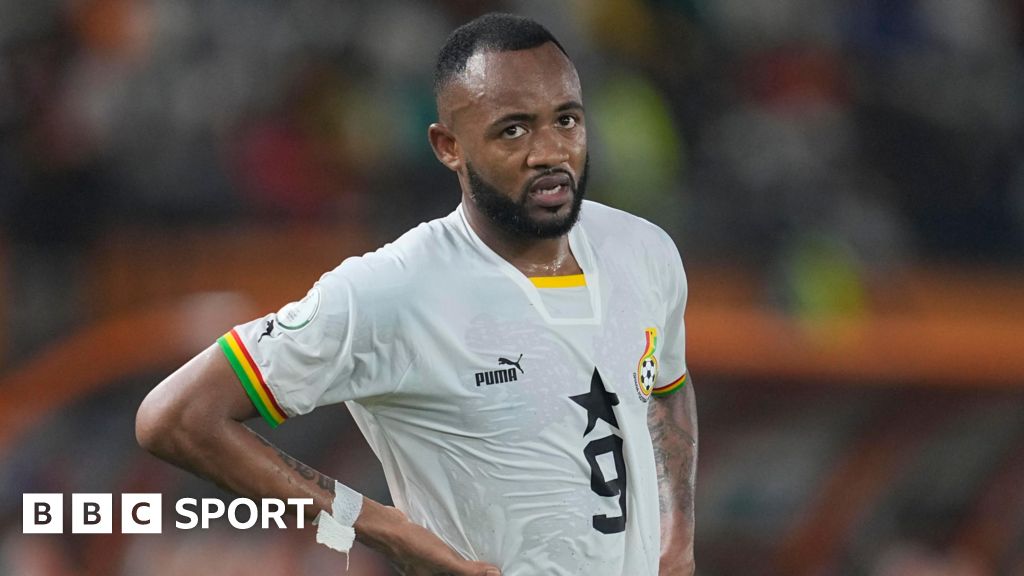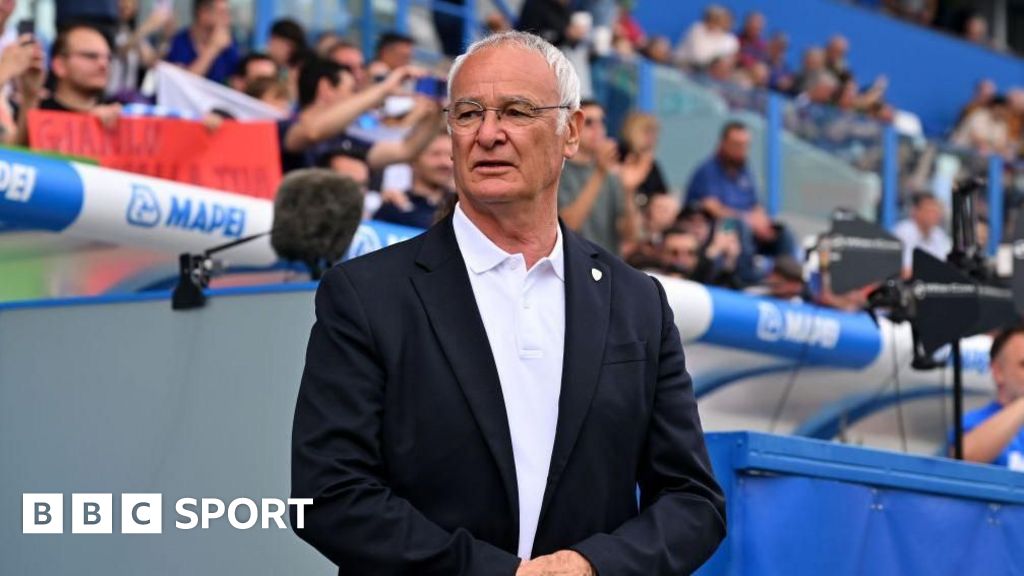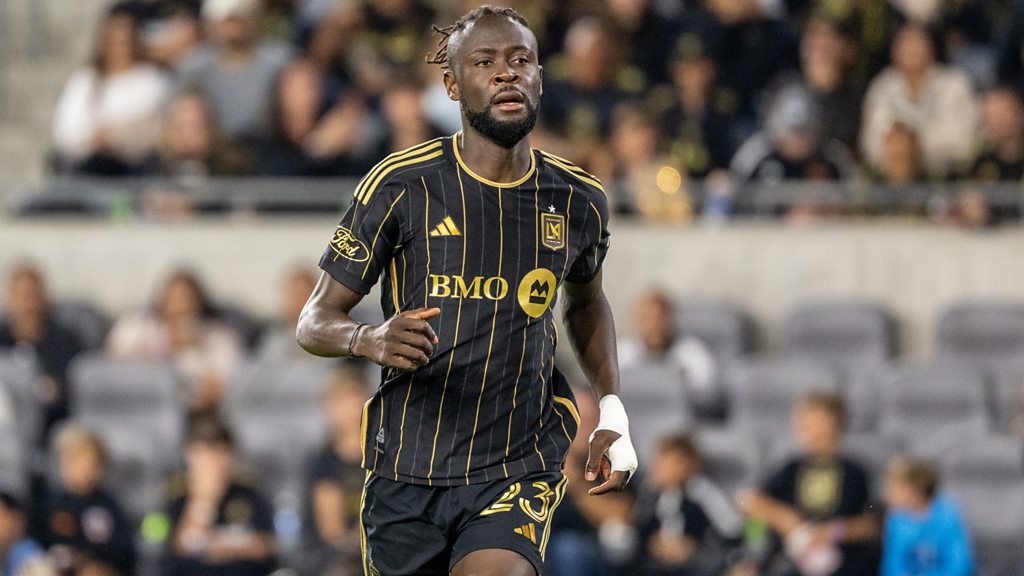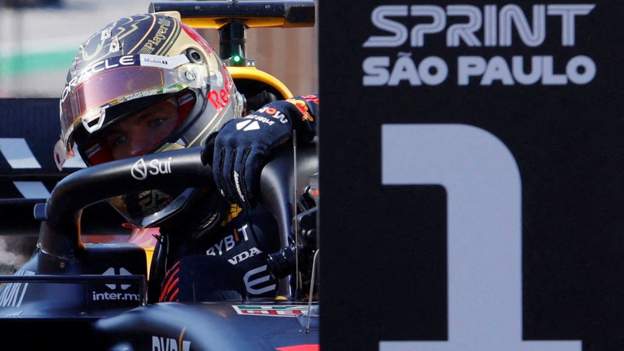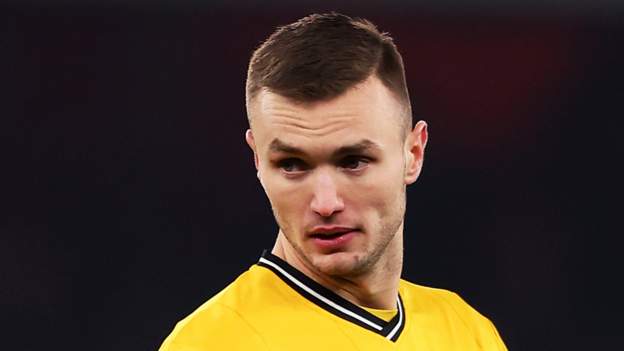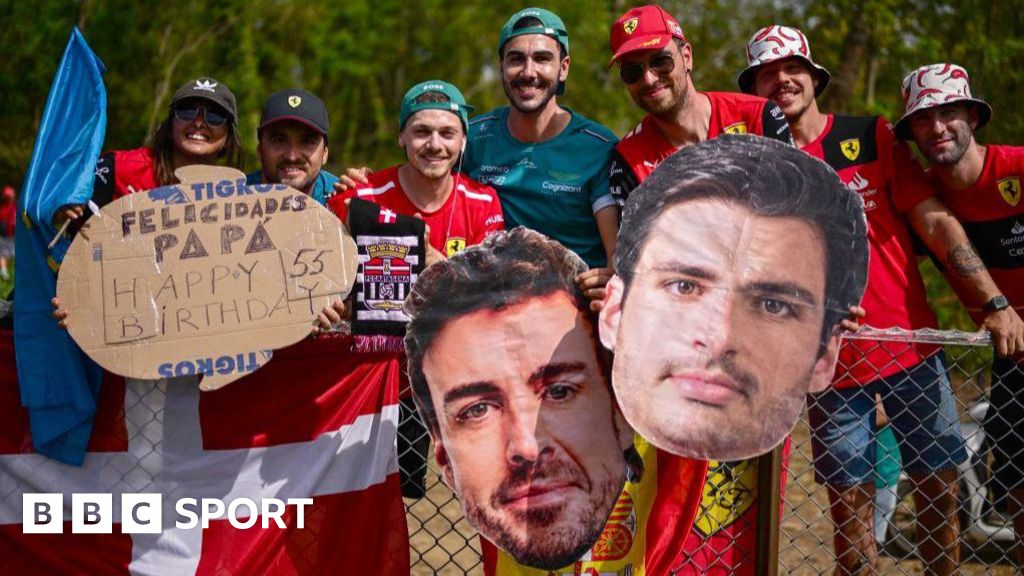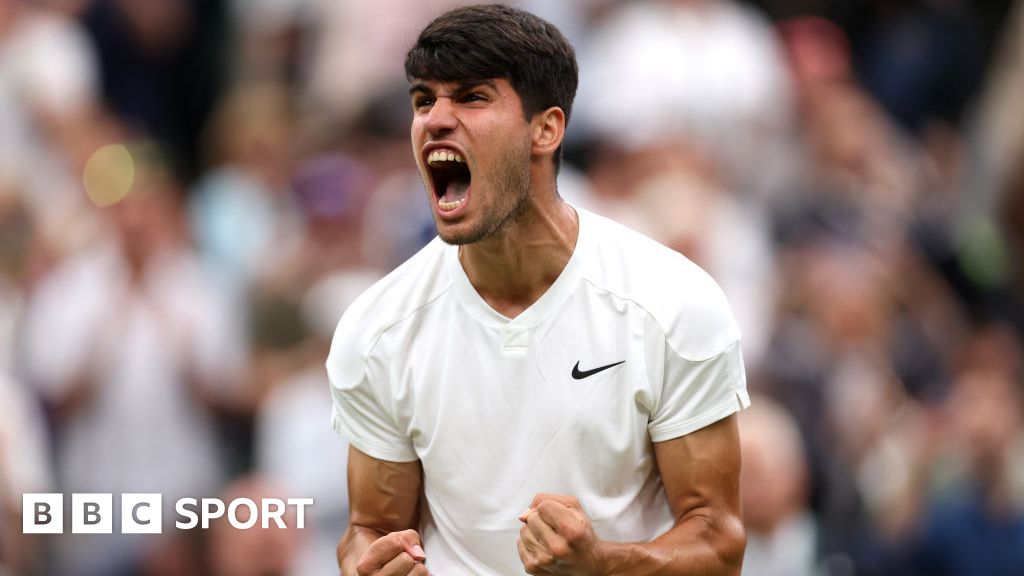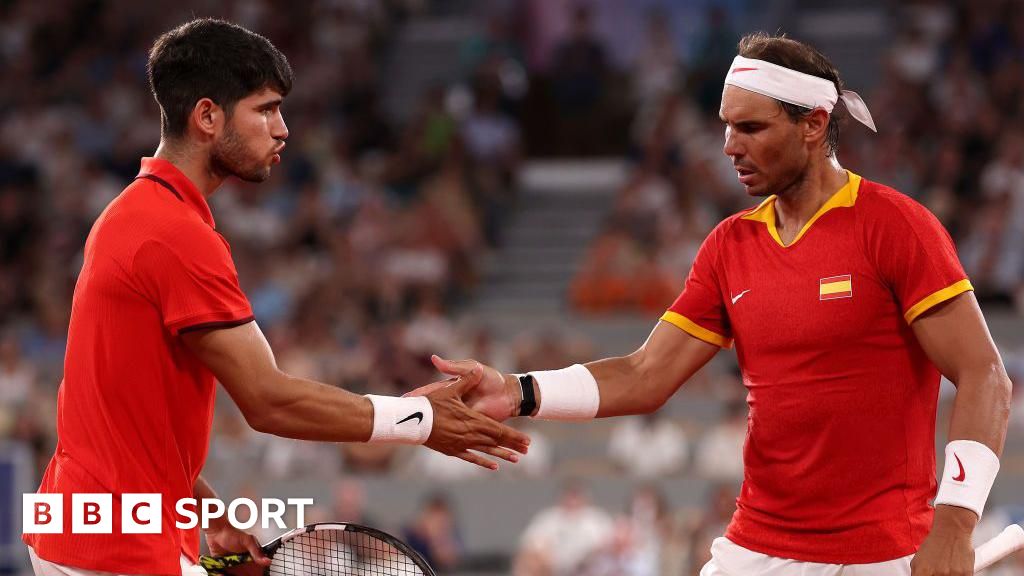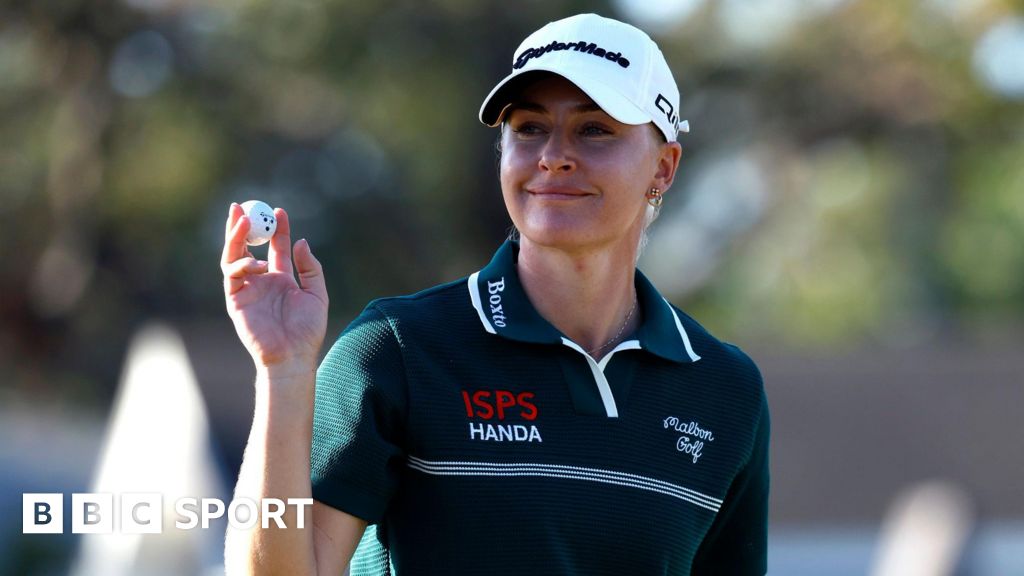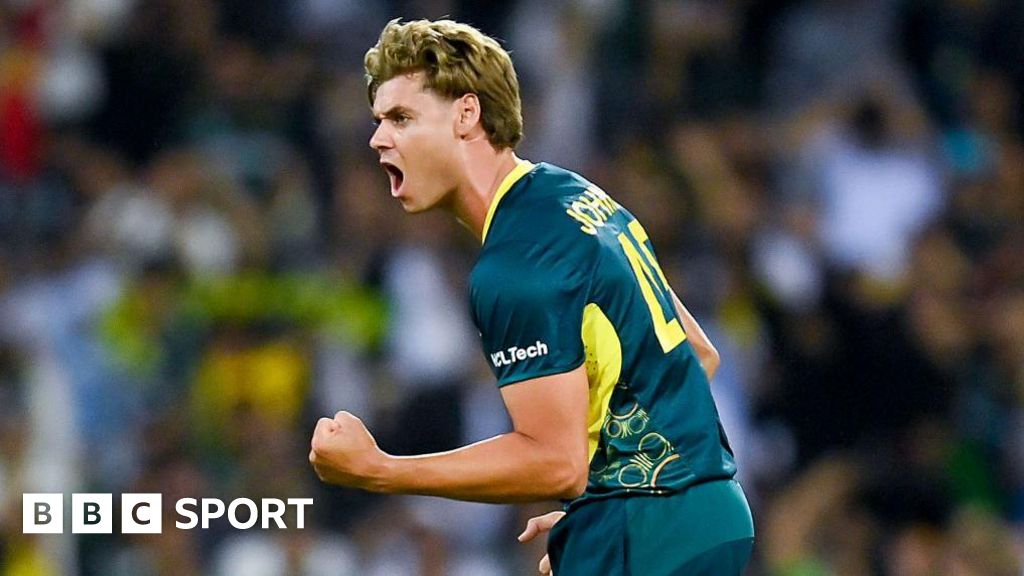The final Formula 1 sprint race of the year, won by Red Bull’s Max Verstappen at the Sao Paulo Grand Prix, has solidified a consensus within the sport that the format needs to change.
Red Bull team principal Christian Horner acknowledged F1 “can do a better job” and said sprint weekends “need tuning”.
His driver Sergio Perez, who finished third behind Verstappen and McLaren’s Lando Norris, proposed running the shorter races with reverse grids, putting the fastest cars at the back.
And Mercedes F1 boss Toto Wolff said the current system was “confusing”.
F1 bosses are discussing a series of options for changes to the sprint format next year amid a feeling that the current system of running grand prix qualifying on Friday and separating out Saturday as a sprint-focused day was not working.
One proposal is to run qualifying for the sprint race on Friday, with the sprint as the first track action on Saturday, followed by qualifying for the grand prix.
Other ideas have been to give more points for the sprint, try grids in reverse championship order, even to create a separate sprint championship.
Final decisions will be taken this winter in discussions between commercial rights holder F1, governing body the FIA and the team bosses, with F1 president Stefano Domenicali holding most sway.
Horner said: “If there is a genuine desire from the fans, we should find a solution. But what we have at the moment isn’t quite right for the drivers or the fans. There needs to be more to it.
“We have just won a sprint race and nobody quite knows what to do because all the focus is on a grand prix. It’s like you’ve won a long run (in a practice session) and got a medal for it.”
Horner dismissed the idea of a sprint championship, saying: “Who cares about that?”
But he added: “What should it be? Should it be a reverse grid, in championship order? Should it have more points attached to it? Should there be two grands prix during a weekend? I don’t have the answer. I know what we have today needs tuning.”
Horner and Wolff both prefer the standard format for a grand prix, with practice on Friday, qualifying on Saturday and a grand prix on Sunday, saying they are “traditionalists”.
But there is no prospect of the sprints being abandoned – F1 put out a series of statistics before the weekend in Brazil that it said proved that sprint weekends create a bigger global audience and more interest, both on television and online.
Wolff said the proposal to deal with sprint qualifying and the sprint race before moving on to grand prix qualifying and the main event “would maybe create less confusion – I’m getting confused”.
He added: “We all have the same objectives, between F1 and the teams. I’ve said it often but I am not keen on these weekends but, if it makes sense from the audience’s point of view, then obviously we do need it.”
The sprints were introduced in 2021 with a different format, which used the result of the sprint race to set the grid for the grand prix.
But after pushback against that and other aspects of the original plan, the current format was introduced for 2022.
A feeling within F1 that the latest arrangements were not working coalesced over the US Grand Prix two weeks ago, and has only strengthened since.
Perez said he believed a reverse grid would make sense given the original intention of providing more interest for the audience over a greater part of the weekend.
“If they want to get this format of sprint races, we’ve got to change it,” he said.
“I would propose a reverse grid, something like that, to make it more interesting for the fans, because I don’t think it’s working, what we want to achieve. Nothing really happens in these sorts of races. For the last two years this sort of event hasn’t brought a lot of good racing.
Verstappen has been consistent in his opposition to the sprint format, and said on Saturday in Brazil: “Just a normal race weekend, please. Thank you. I’m not interested in any change. I don’t like it.”
Other drivers, such as Ferrari’s Charles Leclerc and Mercedes’ Lewis Hamilton, say they appreciate the variety created by the sprint if it is run on only a few weekends, but accept that it needs tweaking.
Driver concerns about rules
Drivers expressed their concerns over other aspects of the rules in Brazil, especially over attempts to control their pace on out-laps in qualifying and the way they exit from the pits.
A new rule imposed in Brazil led to near-misses in the pit exit as drivers jockeyed for position against the backdrop of a new rule that forced them to make gaps to other cars after leaving the pits, after traffic jams at the pit exit in recent races.
Drivers are also forced to stay above a minimum lap time when on a warm-up or cool-down lap, to try to avoid dangerous speed differentials.
But Verstappen said the situation was “just a mess – every single qualifying you have six to eight cars getting noted for driving too slow with the minimum time. I don’t know what we’re trying to achieve”.
Norris added: “There’s just more and more rules for everything and it just causes more and more havoc for everyone.”
Verstappen a safe bet for GP win
Another aspect of the sprint weekends that has been criticised is that it provides too much of a clue as to what will happen in the race.
Verstappen qualified second for the sprint, but took the lead from Norris at the first corner and controlled the race from there.
For Sunday’s grand prix, Verstappen is on pole, with Leclerc second, while Norris starts sixth, also behind the Aston Martins of Lance Stroll and Fernando Alonso and Lewis Hamilton’s Mercedes.
Leclerc said that the Dutchman’s advantage in race pace is so big that it would be “irrelevant” if he took the lead at the start. The principle applies equally to any other driver.



